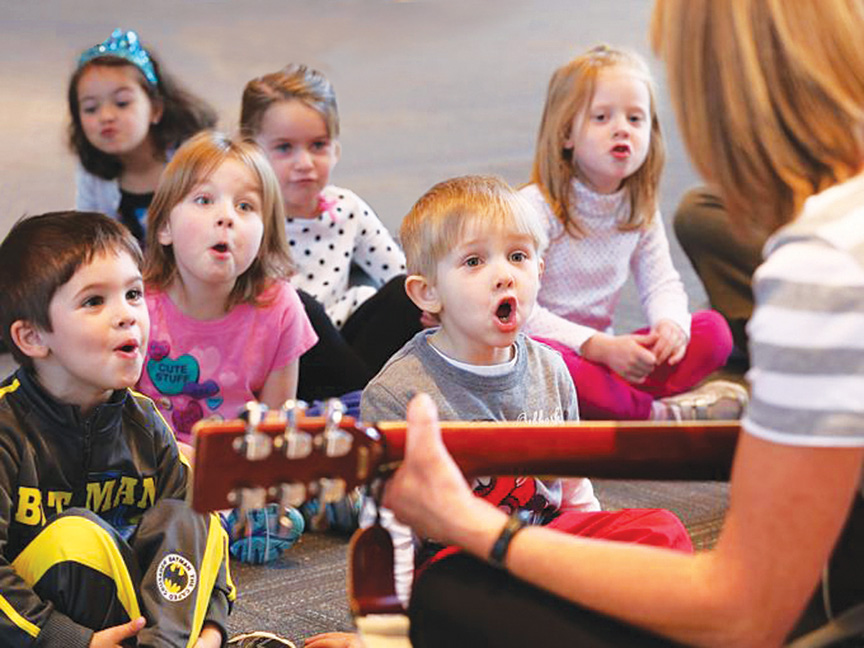BUT DID YOU KNOW THAT…
It is only through music you can stimulate multiple areas of the brain simultaneously – a process that is vital for auditory and language development?
Our bodies can learn to naturally move in time to the rhythm. Our motor systems can naturally start to keep in time to a rhythmic beat. Keeping in time with others helps develop that synchrony and helps children develop rhythm and an awareness of others, thus developing empathy.
A North-western University research showed the importance of music in the lives of deaf children. The Research also showed that:
Music helps a child synchronize their brain and increase their brainpower!
Recognizing tones, pitch and rhythm in music enables children to develop their listening brain for speech and language.
One of these benefits is that it helps a child to improve their memory. The same research also demonstrated that students who were exposed to music while growing up excelled better in academics than those who were not.
Music is motivating, familiar, rhythmic and stimulates a variety of senses.
So do join us for JOYFUL JANUARY 2021!
For those interested in looking at the research, check these out:
SOME REFERENCES FOR MUSIC
Phillips-Silver J, Trainor L. Feeling the beat: Movement influences infant rhythm perception. Science 2005;308:1430
Bonne R, Cunningham J. Children’s expression of emotional meaning in music through expressive body movement. J Nonverbal Behav 2001;25: 21–41
Kraus and Chanrasekaran (2010) Nature reviews Neuroscience, Strat & Kraus (2013) Hearing Review
Tsang C, Trainor L. Spectral slope discrimination in infancy: sensitivity to socially important timbres.Infant Behav Dev 2002;25:183–194
Winkler I, Kushnerenko E, Horvath J, et al. Newborninfants can organize the auditory world. Proc Natl Acad Sci U S A 2003;100:11812–11815
Kirschner & Tomasello (2016): Younger children – improved outcomes – learning scaffolded by interactions with others
SOME REFERENCES FOR MUSIC & LITERACY
Anvari S.H., Trainor L.J., Woodside J., Levy B.A. (2002). Relations among musical skills, phonological processing, and early reading ability in preschool children. J Exp Child Psychol. Oct;83(2):111-30.
Corrigall, K.A., & Trainor, L.J. (2011). Associations between length of music training and reading skills in children. Music Perception, 29(2), 147-155.
Deutsch, D. (2010). Speaking in Tones. Scientific American Mind, July/August, 36-43. Knight, J. (2011). Literacy through Music: Stage 2 report. New London orchestra.
Patel, A.D. (2010). Music, biological evolution, and the brain. In: M. Bailar (Ed.), Emerging Disciplines. (pp. 91-144). Houston, TX: Rice University Press.
Welch, G. (2012). Literacy through music.
Got a question for Rosie?
If there’s something you would like Rosie to address in her blog, then don’t hesitate to get in touch – click the button below and submit your enquiry.


